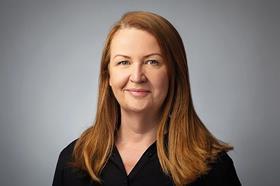‘You need to have a frank discussion about the things that matter to clients’
When our managing partner took up his post in 2020, he was keen to refresh the firm’s strategic direction. There was significant appetite across the firm’s partners to change how we built relationships with and delivered for our clients.

We knew it was essential that any new initiatives or ways of working had to resonate with colleagues and clients. This could not be a tick-box exercise, carried out solely by and for our leadership. Collaboration had to be at its core.
As firms emerge from the pandemic, many are testing previously held assumptions about how they operate, how they motivate staff and how they provide the best service to clients. Key to this is winning stakeholders’ hearts and minds. But firms need to better understand how they are perceived by clients in order to truly serve them. This is why a thorough exercise, which we call ‘client listening’, is an effective way of identifying what really matters to them.
The first important step is to initiate open and constructive conversations with partners. This is not about catching them or their teams out or identifying ‘failings’, but about developing an agile process of collaborative improvement across the firm. Those leading the relationships with clients need to buy in to the feedback process from the start, rather than being surprised by data and insights once the research has been completed.
Next, identify your most important clients. For us, that was 250 clients, which ensured the research was as high-quality and meaningful as possible. There is no substitute for face-to-face engagement, so 45-minute interviews with all of those selected, with tailored conversations guides segmented by client type and region, will deliver maximum value.
You need to have a frank discussion about the things that matter to clients, asking them what you do well and where you could do better, and what more they want to see from your relationship. You may open yourself up to criticism, but this level of transparency can only be good for your long-term relationship with a client.
Once interviews have been completed, the findings of the exercise should be shared not only with the board and partners, but also with business services teams and your advisers. We segmented feedback by region and division to ensure specific insights were targeted at the right teams in the right way. We then used that feedback to influence the firm’s strategic planning, so that lessons are actioned in a structured manner.
Ensuring that clients are taken on the journey with you is critical. Maintain a dialogue to keep them updated on how you are responding to their feedback.
Challenging assumptions
It is quite likely that what you hear in your conversations will be overwhelmingly positive. Importantly, it is also likely that you will discover several insights that challenge how you operate.
For example, an issue common to many firms – and this has been true of all of those I have worked with – is that the client relationship is dominated by just one or two lawyers. Clients like to know the wider team, not just those immediately advising them, including associates and also those across business services teams.
Fresh view
A listening process will instigate a major step-change in how you think and work. Topics for interrogation might include your onboarding process with clients and your compliance procedures. Use its findings to look at the competence frameworks by which you assess lawyer performance. The issues and expertise your clients ask for will impact how you recruit in future.
Our listening exercise found that clients want advisers who are well-rounded, curious and get under the skin of the businesses they advise. So we set up the CRS Business School to develop our colleagues’ skills and knowledge in areas such as project planning, influencing and communication, and mental health and wellbeing. Collaboration was a central theme that emerged from the exercise, so we have now introduced joint training with our clients.
The more you put in, the more you get out
To get results that are truly beneficial, a firm needs to be willing to invest significant time and resource. You have to be willing to talk to a large pool of clients to ensure your data is representative.
An exercise of this kind must be led from the top and owned by the partner group. It is vital that a firm follows through on the responses it receives and does so rapidly. It cannot be a one-off exercise. At best, not acting on what clients have told you will lead to stagnation. At worst, it can be actively detrimental to the relationship. A core outcome must be the implementation of a continuous feedback process.
So, if asked what advice I would give others who are looking to embark on a similar project, I say ‘be brave’. Ultimately, law is a relationship business. You have to work on relationships day in and day out if you and your clients are going to grow together. The process will take longer and be more challenging than you think, but the output is invaluable.
Lesley O’Leary is chief operating officer at Charles Russell Speechlys, London




























2 Readers' comments